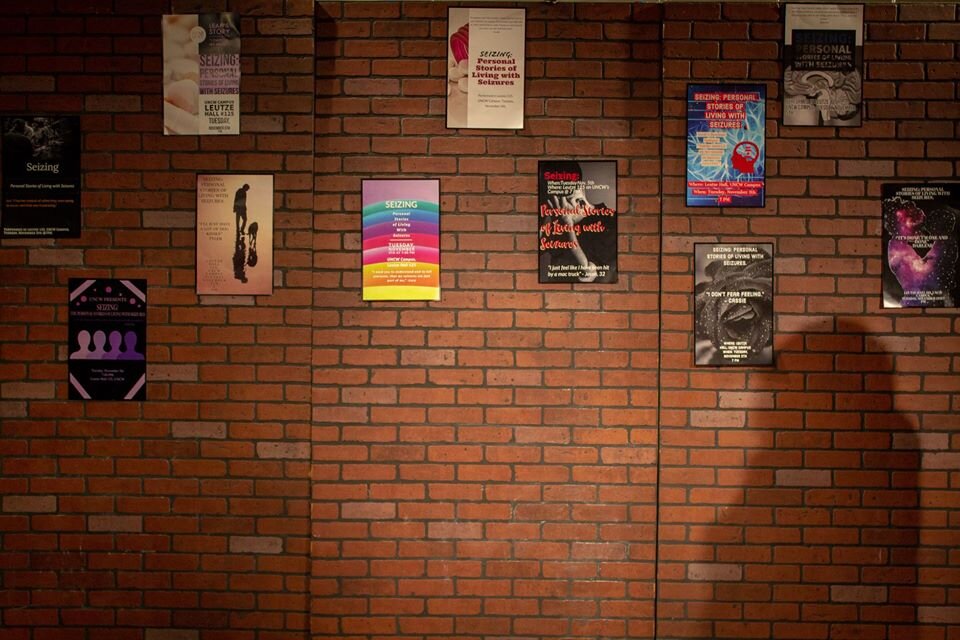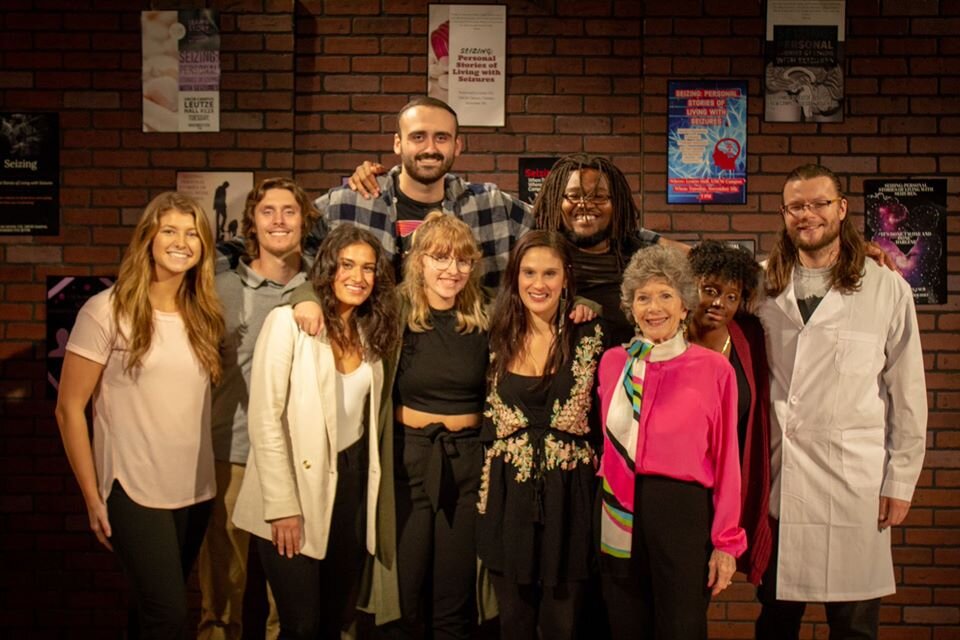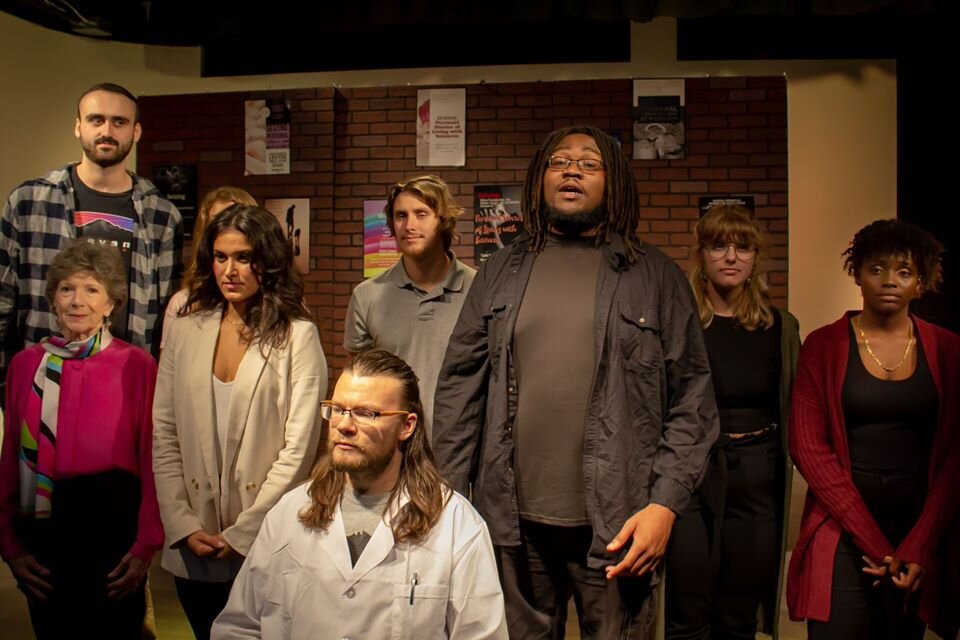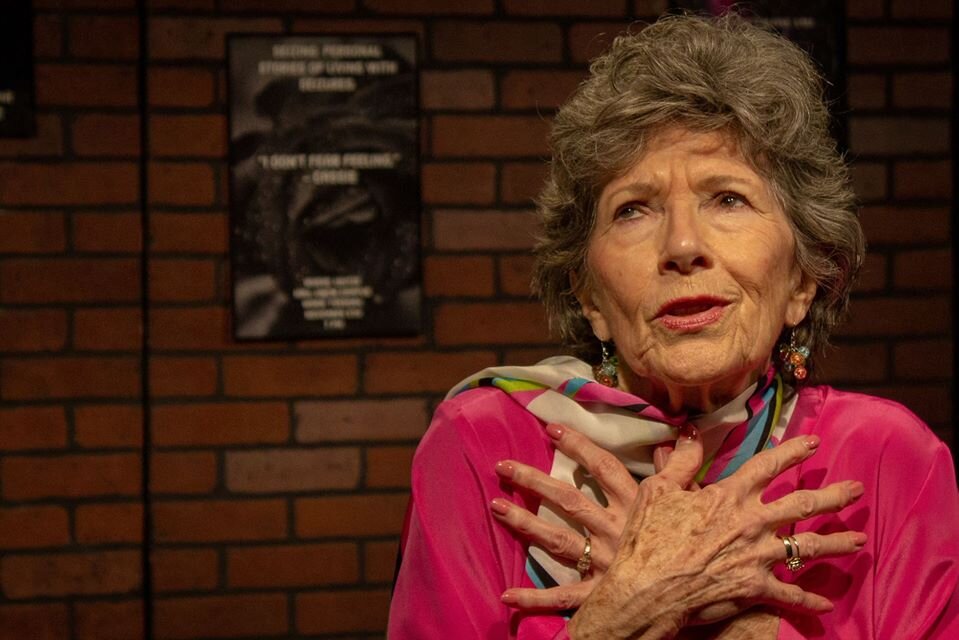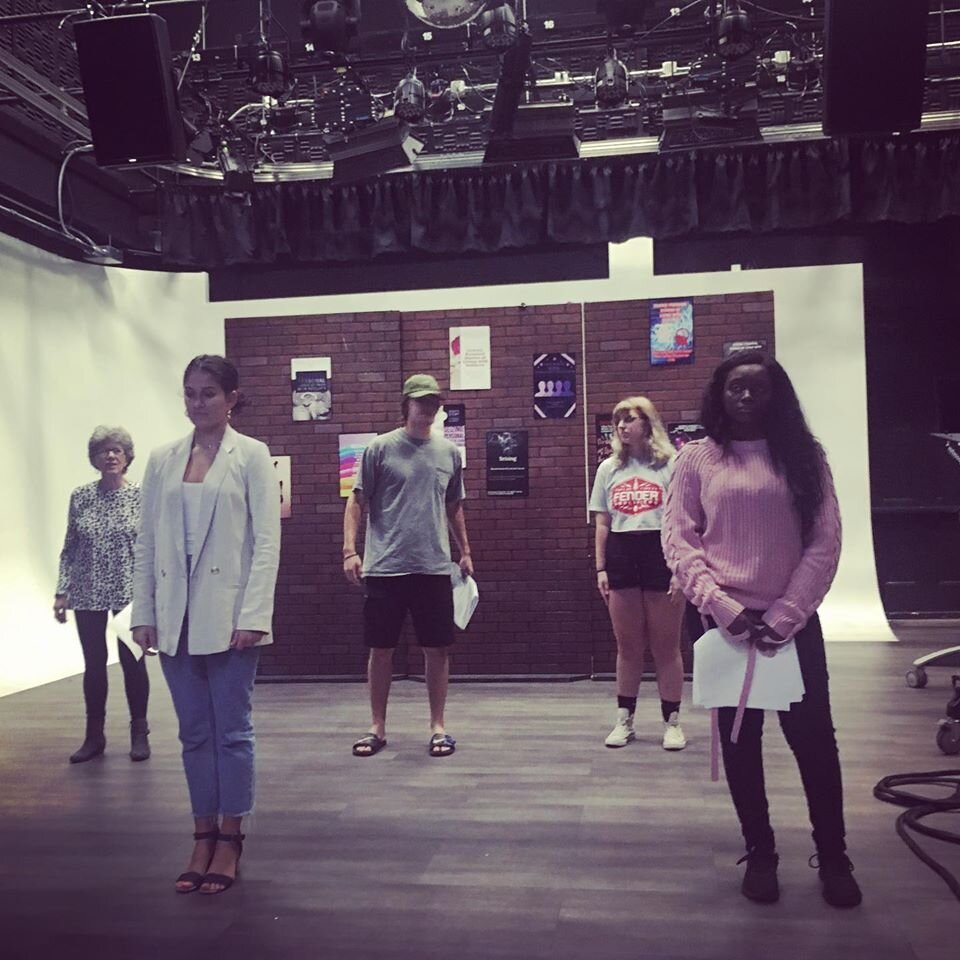PERFORMANCE ETHNOGRAPHY
MEMORIES THAT MATTER: ELDERS’ NARRATIVES OF LOVE AND LOSS
Performance Ethnography is a form of research that takes data collected through participant observation field notes and in-depth interviews and creates a collaborative artistic production that is accessible to audiences outside of the academy. UNCW Communication Studies students and local volunteers have worked together to create productions that have enjoyed national viewings and recognition.
Memories that Matter: Elders' Narratives of Love and Loss was screened as an official competitive selection for the 2015 National Communication Association Film Festival in Las Vegas Nevada. The film went under significant revision based on feedback from viewers. Since then, it has been shown in performance and qualitative methods classes as well as open viewings on campus. The film is currently submitted for professional vetting from the National Communication Association's Performance Review Board and will be included as supplemental material in Embodied Performance as Applied Research, Art, and Pedagogy.
CRIPPING: A PERFORMANCE ETHNOGRAPHY OF DISABILITY AND IDENTITY
Cripping: A Performance Ethnography of Disability and Identity is published in the peer-reviewed international journal Liminalities: A Journal of Performance Studies. You can view the video here and the accompanying pedagogical essay can be found here.
The script for Cripping: A Performance Ethnography of Disability and Identity is based upon narrative research conducted by Julie-Ann Scott. The script was created verbatim from interview transcripts. The actors in this film were enrolled in a 400-level undergraduate Communication Studies class entitled Performance Ethnography in Action: A Film Project. Throughout the process students were required to learn about performance ethnography as an artistic research method in pursuit of cultural connection and social justice. Preparing for filming required students to articulate the ethical considerations surrounding embodying another and performing difference. As both professor and director, Dr. Scott entered into the process with them, also portraying participants from her research project. The film is co-directed by William Bolduc and Frank Trimble and is a production of the University of North Carolina Wilmington, Department of Communication Studies. Copyright 2015.
Video:
Scott, J.A., Bolduc, W. & Trimble F. (2015). Cripping: A Performance Ethnography of Disability and Identity. Liminalities: A Journal of Performance Studies, 11(4), online.
Essay:
Scott, J.A., Bolduc, W. & Trimble F. (2015). Co-creating Cripping: A performance ethnographic research project as undergraduate pedagogy. Liminalities: A Journal of Performance Studies, 11(4), 1-23, online.
SEIZING: PERSONAL STORIES OF LIVING WITH SEIZURES
Seizing is a performance of collected stories of individuals who Dr. Scott-Pollock has been interviewing for a few years about their seizure disorders. Included are small bits of information about seizure disorders but more importantly, it illuminates the day-to-day struggles individuals with seizure disorders go through; activities those who are able-bodied may take for granted.
The individual stories are striking not only because of the emotion and empathy put into the characters but also how “normal” some of their struggles are. You have women discussing their concerns for having children and the risks associated with their medication and their access to healthcare, a man who just wants to keep his dog that he’s cared for and loved for years, a group of people who want to be seen, to be understood.
Speaking with the performers, they describe the work it took to portray these individuals solely on a transcript of their interviews with Dr. Scott-Pollock. Cast member, Moses Eshiet described the experience and work behind developing his role as “challenging and fun because you have to give justice to them using empathy.”
Dr. Scott-Pollock’s work sheds light on an invisible illness that those who do not have may never stop to give it conscious thought. The performance was concluded by Dr. Scott-Pollock addressing the audience with the idea of trying to understand and empathize with those who are different from us. Of the performance, she said, “I’m grateful that each piece was performed with skill, empathy, and commitment.”





















